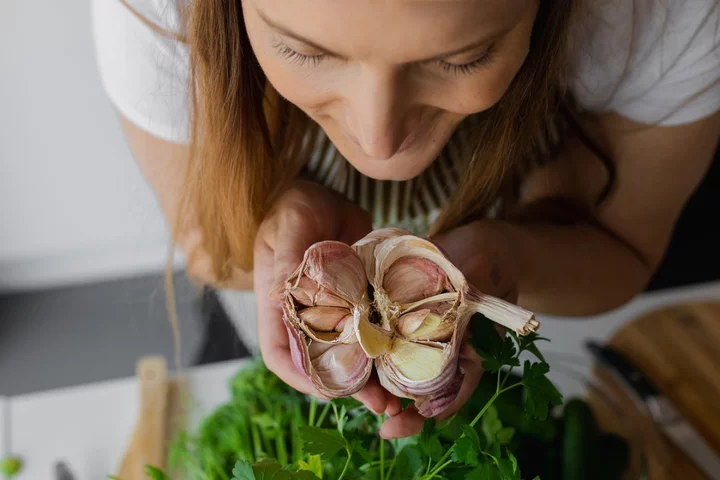
Yoghurt could be the cure for bad garlic breath, study finds
It’s hard to resist garlic sometimes, but its pungent smell can often last long on the tongue and what better way to get rid of it than good old yoghurt? Garlic contains a compound called sulfur volatiles that can cause a bad odour after being eaten. Researchers wanted to better understand how yoghurt and its components can eliminate or reduce such strong odours. For the study, researchers from the Department of Food Science and Technology at Ohio State University, Columbus tested the garlic deodourising capabilities of yoghurt and its individual components of water, fat and protein to see how each stood up to the smell. As a result, the team found both fast and protein were effective at trapping garlic odours, leading the scientists to suggest high-protein foods may one day be formulated specifically to fight garlic breath. “High protein is a very hot thing right now – generally, people want to eat more protein,” said senior study author Sheryl Barringer, professor of food science and technology at the university. “An unintended side benefit may be a high-protein formulation that could be advertised as a breath deodorizer in addition to its nutritional claims,” she said. “I was more excited about the protein’s effectiveness because consumer advice to eat a high-fat food is not going to go over well.” In the lab experiment, researchers placed equal amounts of raw garlic in glass bottles and confirmed the smell of the garlic was released in concentrations that would be detected by the human nose. Scientists measured the levels of volatile molecules in gaseous form present before and after each treatment. It was revealed that garlic alone reduced 99 per cent of the major odour-producing raw garlic volatiles. When introduced separately, the fat, water and protein components of yoghurt also had a deodorising effect on raw garlic, but results showed fat and protein performed better than water. Looking at fat’s performance, a higher quantity of butter fat was more effective at deodorisation. The proteins which were studied included different forms of whey, casein and milk proteins, all of which were effective at deodorising garlic. This may be because of their ability to trap the volatile molecules before they are emitted into the air. A casein micelle-whey protein complex performed the best. “We know proteins bind flavour – a lot of times that’s considered a negative, especially if a food with high protein has less flavour. In this case, it could be a positive,” Barringer said. Additional experiments that involved changing the pH of the yoghurt to make it less acidic (4.4 pH to 7 pH) actually appeared to lower the yoghurt’s deodorisation effect on the garlic. However, changing the pH of water did not seem to make any difference on the water’s deodorization effect. “That’s telling me it goes back to those proteins because as you change pH you change the configuration of proteins and their ability to bind. That said we definitely should be looking at these proteins,” Barringer said. “It probably depends on the protein, as well, because different proteins react differently to pH. So that may be an important thing as we look at other proteins for their garlic deodorization effect.” The team also tested the deodorising effect of yoghurt and its components on fried garlic, in the process they found that drying garlic alone can significantly reduce garlic odour. Yoghurt and its individual ingredients neutralised a lower percentage of volatile compounds of fried garlic compared to raw garlic. Study authors think this may be because there were fewer volatiles to trap than were present in the raw cloves. The findings have provided a foundation for future studies on proteins that might help fight the garlic breath. In the meantime, Barringer predicts that Greek yoghurt, with a higher protein profile than the whole milk plain yoghurt used in the study, may be particularly effective at getting rid of garlic breath. Fruit-flavoured yoghurts will probably work, too, she said – and whatever is used, it must quickly follow ingestion of raw garlic. “With apples, we have always said to eat them immediately,” she added. “The same with yoghurt is presumed to be the case – have your garlic and eat the yoghurt right away.” The study was published in the journal Molecules. Read More 11 best mouthwashes that will keep your mouth minty fresh Women less likely than men to receive CPR from strangers, study finds Study finds toxic ‘forever chemicals’ may be ‘intentionally added’ to some period products Yoghurt could be the cure for bad garlic breath, study finds Teenager’s death after drinking too much water was ‘preventable’ Could bats hold the secret to beating Covid and cancer?
2023-09-25 17:56

Gisele Bündchen says her divorce from Tom Brady is ‘not what she dreamed of’
Gisele Bündchen has spoken candidly about ex Tom Brady, with the model confessing that their divorce is not something she ever “dreamed of”. The Brazilian model, 43, reflected on getting divorced in 2022, after 13 years of marriage, during a preview of her upcoming interview with CBS News Sunday Morning, which will air on 24 September. After expressing that she wouldn’t “change anything” about the experiences she’s had in her life, correspondent Lee Cowan chimed in and asked: “Not even your divorce?” In response, she noted that while she never thought that she’d get a divorce, after seeing how long her own parents have been together, she’s still come to terms with her split. “I mean, it’s not what I dreamed of and what I hoped for," she said. “My parents have been married for 50 years, and I really wanted that to happen. But I think you have to accept, you know, sometimes that the way you are in your 20s, it’s sometimes you grow together, sometimes you grow apart.” Bündchen went on to acknowledge that the former NFL star will continue to be a part of her life, since they share two children, son Benjamin, 13, and daughter Vivian, 10. Brady also shares a 16-year-old son, John, with ex Bridget Moynahan “I mean, he’s the father of my kids, you know?” she added. “So, I always wish him the best, and I’m so grateful that he gave me wonderful children.” In October 2022, Bündchen and Brady announced they were divorcing after over a decade of marriage. The move also came weeks after it was previously reported that the athlete and former supermodel had hired divorce lawyers. “We arrived at this decision amicably and with gratitude for the time we spent together,” he wrote on his Instagram Story.“We are blessed with beautiful and wonderful children who will continue to be the centre of our world in every day. We will continue to work together as parents to always ensure they receive the love and attention they deserve.” Bündchen later issued a statement of her own to Instagram, writing: “With much gratitude for our time together, Tom and I have amicably finalised our divorce. My priority has always been and will continue to be our children whom I love with all my heart. We will continue co-parenting to give them the love, care and attention they greatly deserve.” In her statement, she acknowledged that the decision to end a marriage is “never easy,” but that she and Brady have “grown apart”. “And while it is, of course, difficult to go through something like this, I feel blessed for the time we had together and only wish the best for Tom always,” she continued. “I kindly ask that our privacy be respected during this sensitive time.” Since the divorce, Bündchen has continued to speak out about her relationship with her ex. Earlier this week, she reflected on the challenges her family has experienced since the divorce. “It’s been very tough on my family. It’s been a lot - in every area of my life,” she said during an interview with People, published on 18 September. After finalising her divorce in October 2022, she relocated her family to Florida for Brady’s three-season stint with the Tampa Bay Buccaneers. While the model has now settled down in Miami, she was reportedly helping her two ailing parents at the same time. “I feel like whenever it rains, it pours,” Bündchen explained to the outlet. “With all the different twists and turns that life takes, all we can do is the best we can given what happens in our surroundings.” During an interview with Vogue Brasil, published last month, she opened up about maintaining a positive outlook on life after her divorce from the quarterback. “I’ve always believed that every situation, no matter how challenging, teaches us something and helps us grow,” she said. “Breakups are never easy, especially when the media is speculating every step of the way. I tried to focus on my children, my health and my projects and dreams.” In March, Bündchen also explained how she and Brady are navigating co-parenting. “We’re not playing against each other,” she told Vanity Fair. “We are a team, and that’s beautiful. I look back and I have no regrets. I loved every bit of it.” Read More Gisele Bündchen opens up about ‘tough’ times nearly one year after Tom Brady divorce Gisele Bündchen reveals why she hasn’t had alcohol in two years Tom Brady responds to viral photo of him at Blackpink concert Gisele Bündchen opens up about ‘tough’ times nearly one year after Tom Brady divorce Gisele Bündchen reveals why she hasn’t had alcohol in two years Dwyane Wade ‘tried to break up’ with Gabrielle Union after fathering baby with woman
2023-09-23 03:56

Dwyane Wade ‘tried to break up’ with Gabrielle Union after fathering baby with another woman
Dwyane Wade has revealed that he initially “tried to break up” with Gabrielle Union, before telling her that he fathered a child with another woman. In a recent appearance on Shannon Sharpe’s Club Shay Shay program, the former NBA star, 41, reflected on how he told his now-wife about his son, Xavier Zechariah, who he welcomed in 2013 with Aja Metoyer when he and Union were broken up. He started off by recalling how scared he was to tell Union about him and Metoyer before the news went public. “You know that this is going to hurt someone you’ve been building a relationship and life with,” he said. “You gotta sit with you and you gotta sit with this person if this is who you’re going to be with. I had to sit with my wife and have this conversation.” He went on to praise the Bring It On star for standing by his side, as he told her about having his son in the middle of his busy basketball career. “I couldn’t have gotten through that moment without her sticking with me,” the Olympian said. “We were in the playoffs, I think we were even going into the finals. That was a rough time for me…You got a lot on your mind. You’re keeping something from people you love. It’s heavy.” Wade then confessed that when he first had that conversation, he tried to avoid bringing it up, and even attempted to end things with the actor. “I tried to break up with her. Like: ‘Hey things have been bad lately, we’ve been having a little distance in our relationship anyway,’” he recalled. “I tried all of that.” However, he said that Union “kept showing up” for him, and they continued moving forward. He also acknowledged that since welcoming Xavier, his relationship with his wife “hasn’t been perfect,” before noting that they still “go to therapy”. “We’ve been to therapy, we’ve had shouts about it,” he said, referring to how he’d fathered his son with Metoyer. “We’ve had regular conversations. And so, it’s going to continue to be something that I have to work at and work on. It doesn’t go away because years come, or because I say: ‘Sorry.’” Elsewhere in the interview with Sharpe, Wade also expressed that he’s had concerns for Xavier, explaining that “it’s hard” for his child to be associated with the headlines that came from his parent’s relationship. “It’s going to always be there. He’s done nothing. It’s a stain that’s on him for no reason,” the former Miami Heat player said. After noting that he and his wife are either “going to get through it” or “ain’t going to get through it”, he emphasised that he’s still continued to think about his nine-year-old son, who already “has a negative impact next to his name”. “He hasn’t even had a chance to accomplish something, and he already has a negative next to his name because of how he was brought into this world,” he said. However, he still expressed his gratitude for his family and acknowledged that they’ll “get through” challenges together. Union and Wade went on to get married in 2014, before welcoming their daughter, Kaavia, via surrogate in 2018. In addition to his child with Metoyer, Wade shares two children, Zaire, 21, and Zaya, 16, with ex-wife Siovaughn Funches. He’s also the legal guardian of his nephew, Dahveon Morris, 21. This isn’t the first time Wade has recalled how he told Union about his child with another woman. During his 2020 ESPN documentary, Wade: Life Unexpected, he first described how difficult it was to have that conversation with his now-wife. “Hardest thing I’ve ever had to do is man up and tell Gabrielle Union that I’ve had a child with somebody else. I couldn’t sleep. I wasn’t eating,” he said during the documentary, as reported by Entertainment Tonight. “When you hold something in that you know is going to come out and you have this information and you know it’s gonna f**k somebody’s life up, that you care about, that you love, if it don’t hurt you, then you’re not human.” In her 2021 book, ​You Got Anything Stronger?, Union first opened up about the “trauma” of her husband having a baby with another woman. “It should go without saying that we were not in a good place at the time that child was conceived,” she wrote “But we were doing much better when he finally told me about the pregnancy. To say I was devastated is to pick a word on a low shelf for convenience.” Despite her devastation, the actor acknowledged that there have been countless people who have been upset with her decision not to talk about the birth of her husband’s son, with Union explaining that she had “not had words”. “There are people – strangers I will never meet – who have been upset that I have not previously talked about that trauma. I have not had words, and even after untold amounts of therapy I am not sure I have them now,” she wrote. Read More Dwyane Wade recalls daughter Zaya Wade being ‘scared’ and hiding from him after coming out Gabrielle Union reveals how she conquered her fear of being a ‘bad mom’ Dwyane Wade says his family left Florida because anti-trans laws made it so they ‘would not be accepted’ Katherine Heigl opens up about decision to raise children in Utah Researchers link ultra-processed food and drink to risk of depression in women Shakira opens up about co-parenting her two sons with ex Gerard Piqué
2023-09-23 00:16
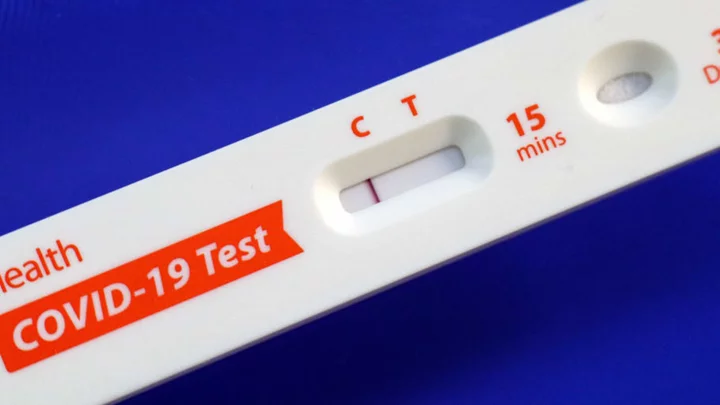
The Government Is Mailing Out Free At-Home COVID-19 Tests Again—Here’s How to Get Them
The USPS will soon be on its way with more government-issued at-home COVID test kits. Here’s how to make sure they stop at your door.
2023-09-22 22:22

Strictly’s Amy Dowden shares ‘hardest step’ of cancer journey
Amy Dowden has shared “the hardest step” of her cancer journey with fans as she shaved her head. The Welsh dancer, who has competed on Strictly Come Dancing since 2017, was diagnosed with breast cancer in May. She is currently undergoing chemotherapy. Dowden, 33, has been documenting the journey for her fans, and recently described in a candid video how she “cries every day” as her hair falls out due to treatment. On Thursday (21 September), with Dowden over halfway through her chemotherapy, the dancer made the brave decision to “take control” and shave her head. In a montage shared on Instagram, Dowden was shown dabbing at her eyes while her “loved ones” cut off chunks of her hair down to a short, cropped style. The remaining hair was then shaved off, with the Strictly star growing more emotional and pausing to cover her face with her hands. However, she was in the end shown admiring the end results in the m “This too shall pass,” Dowden wrote, before describing the haircut as “the hardest step so far”. “I tried my best to save it. I know it’s only hair but these past few months I’ve had what feels like so much taken away from me that has made me not feel like Amy. I’m missing every possible aspect of dancing. I just wanted to keep my identity with my hair and I tried telling myself it wouldn’t go. But I would dread the pain of waking up to the shredding everyday.” She continued: “I’ve not been able to take control of this journey so far, but as you can see with some of my loved ones I took the courage and CONTROL. “It’s going to take some time to get use to and learn to love and embrace but, I’m now focusing – not on the hair I’m losing but the hair I’m going to get back and the happy dancing, tea lover who talks way to fast whilst rolling every rrrrr who is still there inside with or without hair!” Dowden said that she could now “see the finish line” after shaving her head, explaining: “This for me was a hurdle I couldn’t even bring myself to think or speak about. I’ve done it and I’ve also crossed the halfway chemo line! I’m feeling empowered and positive!” Dowden’s fellow Strictly pro Dianne Buswell commented: You are still all the things you were before, just with added courage, strength and determination. One thing about you is that you don’t let anything take over! “I cannot wait to have you back on the dancefloor with us chatting away, making endless cups of tea! We all love you so much and I’m such a proud friend.” Due to her treatment, Dowden has not been given a professional partner during this series of Strictly Come Dancing. However, the team paid tribute to Dowden during Saturday (16 September) night’s launch show. Host Tess Daly called Dowden their “Welsh dragon” and explained that she would be missing “the start of the series”. Strictly Come Dancing continues Saturday 23 September at 6.15pm on BBC One. Read More Strictly’s Bobby Brazier: ‘I don’t think happiness or fulfilment lies in what TV show I’m gonna do’ Strictly’s Amy Dowden says she ‘cries every day’ as she opens up on losing her hair during cancer treatment Strictly Come Dancing’s biggest stars this year are 50 plus – it’s refreshing to see Stacey Solomon leads tributes to cancer campaigner Nicky Newman who has died aged 35 Is a four-day week a good idea? | You Ask The Questions Yoghurt could be the cure for bad garlic breath, study finds
2023-09-22 16:52

U.S. FDA found lapses at Novo's main U.S. factory in May 2022 -report
By Maggie Fick LONDON (Reuters) -U.S. drug regulators issued a report detailing quality control lapses at Novo Nordisk's main factory
2023-09-21 16:51
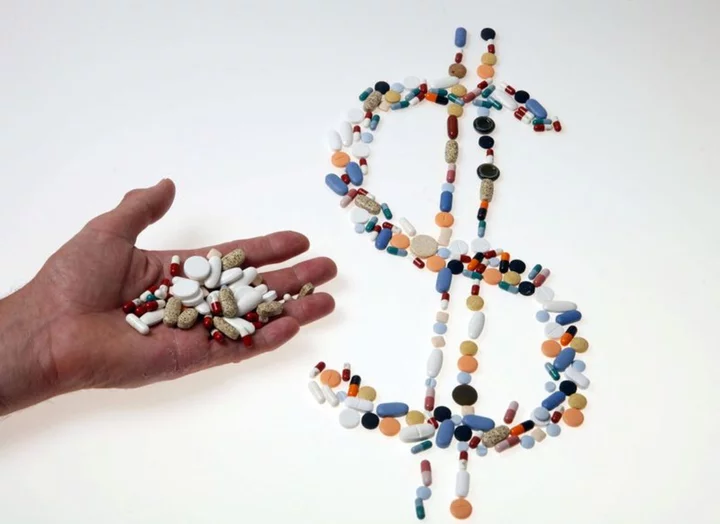
US employers to see biggest healthcare cost jump in a decade in 2024
By Leroy Leo and Khushi Mandowara U.S. employers are bracing for the largest increase in health insurance costs
2023-09-21 01:55

Could bats hold the secret to beating Covid and cancer?
Bats could hold the key to unlocking new ways to combat cancer, a new study suggests. A paper published by Oxford University Press, looks at the rapid evolution of bats for their abilities to both host and survive infections such as Covid-19 as well as cancer. The animals are known to have a strong immune system which helps fight off many viruses and diseases. These mammals are also thought to have played a role in the emergence of Covid-19 and scientists say such characteristics are interesting to investigate due to the implications it might have on human health. According to the research, understanding the mechanisms of the bat’s immune system that allows these animals to fight off viral infections – may pave the way to understanding how to prevent disease outbreaks from animals to people. To conduct the study, researchers sequenced the genomes of two bat species - the Jamaican fruit bat and the Mesoamerican mustached bat. The team used advanced technology from Oxford Nanopore Technologies and bat samples collected by the American Museum of Natural History in Belize. They then compared the bat genomes to those of other mammals. The results revealed that bats possessed genetic adaptations in proteins which are related to DNA repair and cancer suppression. It was found that bats had adaptations in six DNA repair-related proteins and 46 cancer-related proteins. The study also found that bats had more than double the number of altered cancer-related genes compared to other mammals, which provided further evidence that they have the ability to suppress cancer. “By generating these new bat genomes and comparing them to other mammals we continue to find extraordinary new adaptations in antiviral and anticancer genes,” said the paper’s lead author, Armin Scheben. “These investigations are the first step towards translating research on the unique biology of bats into insights relevant to understanding and treating ageing and diseases, such as cancer, in humans.” The results open up new paths for understanding and studying the links between cancer and immunity, which offers hope that these insights from bats might possibly lead to new treatments for human illnesses. According to the United States Department of the Interior, there are over 1,400 species of bats worldwide and are mostly found in extreme deserts and polar regions. In the US and Canada, there are about 45 species of bats. Read More British bats ‘can help identify coronaviruses with potential to infect humans’ Coronavirus origins still a mystery 3 years into pandemic Groundbreaking migraine treatment offers ‘new hope’ for patients World Sepsis Day: What is the condition and its symptoms? Duran Duran’s Andy Taylor says he’s ‘asymptomatic’ after end-of-life diagnosis
2023-09-20 22:26
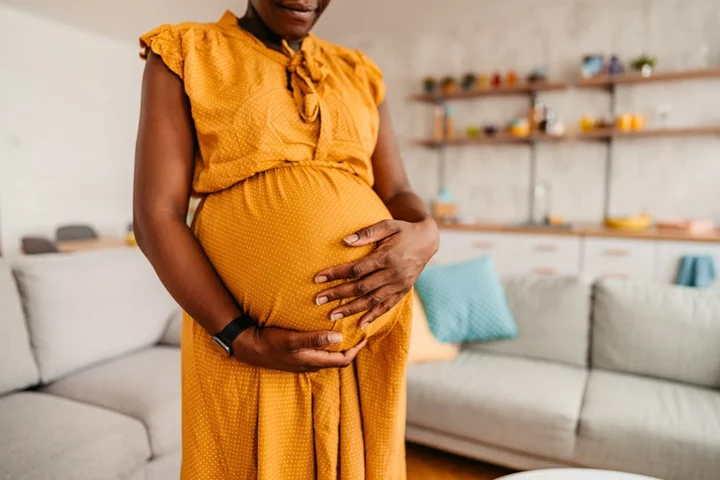
Placenta abnormalities could be the reason for miscarriages, study suggests
A new study has found that placenta abnormalities could be the reason for miscarriages. In the United States, there are approximately 5 million pregnancies per year with 1 million ending in a miscarriage and over 20,000 ending in stillbirth, according to a paper published in the journal Reproductive Sciences. “To have a pregnancy loss is a tragedy. To be told there is no explanation adds tremendous pain for these loss families,” said senior author of the paper and research scientist at Yale School of Medicine, Dr Harvey Kliman “Our goal was to expand the current classification systems to decrease the number of cases that remained unspecified.” For the study, researchers worked to create a classification system for miscarriages based on a test that examines a sample of the body’s tissues – known as pathologic examination. The team looked at a series of 1,527 single-child pregnancies that ended in miscarriage, and the data was then sent to Yale for evaluation. After excluding cases without adequate material for examination, 1,256 placentas from 922 patients were examined. Of these, 70 per cent were miscarriages and 30 per cent were stillbirths. By adding the explicit categories of “placenta with abnormal development” (dysmorphic placentas) and “small placenta” (a placenta less than the 10th percentile for gestational age) to other incidents such as cord accident, abruption, thrombotic, and infection – researchers were able to determine the results of 91.6 per cent of the pregnancies, including 88.5 per cent of the miscarriages and 98.7 per cent of the stillbirths. The most common results for unexplained miscarriages were dysmorphic placentas (placenta with abnormal development) which was around 86.2 per cent. For stillbirths, there was 33.9 per cent due to a small placenta. “This work suggests that the over 7,000 small placentas per year associated with stillbirths could have been detected in utero — flagging those pregnancies as high risk prior to the loss,” said Dr Kliman. “Likewise, the identification of dysmorphic placentas may be one way to potentially identify genetic abnormalities in the almost 1 million miscarriages that occur in our country every year.” He said having a definite explanation “for a pregnancy loss helps the family understand that their loss was not their fault, allows them to start the healing process, and, when possible, prevent similar losses — especially stillbirths — from occurring in the future.” When asked what the most effective way might be to prevent stillbirths, Dr Kliman responded, “Measure the placenta!” Read More 'Please, keep beating little heart': Man gives raw account of wife's miscarriage and fears for new unborn child Woman who had six miscarriages celebrates pregnancy with rainbow baby photoshoot Miscarriage: The loneliest grief of all Nearly a fifth of parents fear children will ignore health issues while at university Brits feel their mental health declining due to cost of living crisis How often should you wash your pyjamas?
2023-09-19 23:50
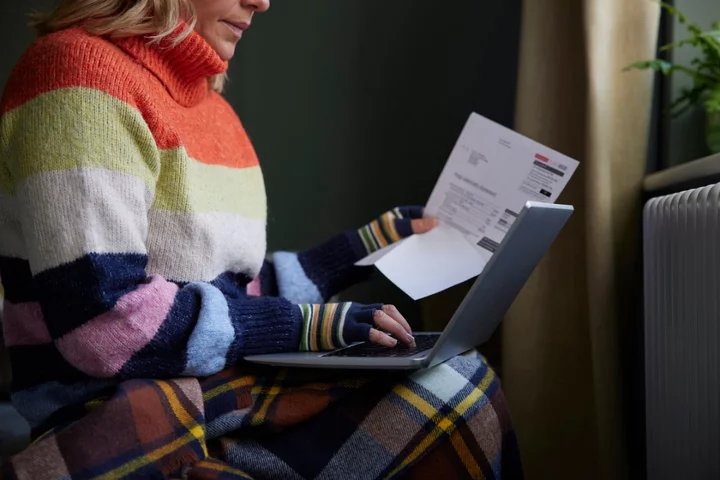
Brits struggle with mental health due to cost of living crisis
People in Edinburgh, Leicester and Glasgow are struggling the most with their mental health - due to the cost of living crisis. A poll of 2,000 adults found 27 per cent have really taken a hit when it comes to their wellbeing, because of a lack of finances. Newcastle, London and Leeds are other key cities where people are most affected. Cutting down on socialising, gym memberships and nutritious food to save money are reasons why so many feel disheartened and worried about their mental wellbeing. And 40 per cent are dreading the winter as they are unsure if they will be able to afford energy bills to heat their home. The survey was commissioned by British Gas, which is working with Professor Green to raise awareness of the struggles so many are facing and highlight the free support available in the new phase of the British Gas Post Office Pop-Ups. The musician and mental health advocate said: “As a parent your first instinct is to protect and provide, and when you’re doing everything you can, and that’s still not enough, it has a profound impact on your mental health. “Shame, stigma and fear can keep people from speaking up for help, but it’s the best thing you can do – for yourself, your family and your community. “Stress and anxiety breed in uncertainty so I really encourage you to visit a British Gas Post Office Pop-Up or contact the British Gas Energy Trust to help you gain confidence in, and control of, your future.“ The research found 14 per cent of adults are cutting back on how often they shower to lower their bills, and 21 per cent aren’t buying birthday gifts for loved ones. One in 20 (five per cent) say their kids are missing out on new toys. Just over half (55 per cent) believe their mental health would definitely improve if they were more financially stable. People in Manchester were found to be most likely to skip using heat or electricity to keep their homes warm. But those in Edinburgh were most likely to report that they have had issues with money that have led to incurring additional debt, like credit cards. Only 27 per cent of all adults polled via OnePoll are confident they are accessing all the benefits they may be entitled to when it comes to support with their energy bills. One in 10 also believe the rising cost of energy has caused them a great deal of additional stress. And 25 per cent baldly state they are expecting to struggle to pay their energy bills through the rest of the year. Nearly the same amount (24 per cent) said the current cost of living crisis has been just as bad for their mental health as the Covid-19 pandemic. British Gas Energy Trust CEO Jessica Taplin said: “Debt and money stresses are debilitating, which is why we are delighted to be offering money and energy advisors funded by us in Post Offices across the country. “Working with an artist like Professor Green can really help raise awareness, and let people know it’s good to talk about the things that are worrying them.” Read More Voguewashing London Fashion Week won’t pay the wages of Britain’s young fashion designers What is happening to local government finances and why are councils struggling? ‘School staff seeing more students who do not have enough dinner money’ Nearly a fifth of parents fear children will ignore health issues while at university How often should you wash your pyjamas? ‘My baby’s blue eyes drew praise – but their colour was a warning sign’
2023-09-19 22:49

Nearly a fifth of parents fear children will ignore health issues while at university
Nearly a fifth of parents fear their teenager will ignore a health issue while at university, as many self-diagnose on Google, research has found. Just 13 per cent of the 2,000 parents polled think their son or daughter would consult a proper doctor as soon as they feel unwell. More than one in 10 (12 per cent) think their offspring would be too lazy to seek medical attention, and 11 per cent fear they do not make their health a priority. The study of parents whose children either attend university, have done in the past or plan to soon, by Bupa Family+, also found that many (53 per cent) said their child thinks they are ‘invincible’ and nothing bad will ever happen to them. And as thousands of students prepare to start university, 56 per cent of parents feel excited for their child while 41 per cent are anxious. Dr Naveen Puri, GP and spokesperson for Bupa Family+, which commissioned the research to support the launch of its Family+ insurance proposition built around savings on health insurance for families, said: “All parents worry about their children, whatever their age. “But it can be especially difficult when they move out for the first time and become more independent – and you are no longer nearby to help them. “As a child and even a young adult, when you are unwell or have a health issue, your parents are often your first port of call, or even the ones spotting something is wrong in the first place. “They are usually the ones pointing you in the right direction, sorting appointments and arranging medication you might need. “Moving out or going to university is both an exciting and daunting time for all the family and we hope our new Family+ cover, which also insures older children, will help provide peace of mind to parents and their children alike.” It also emerged that parents’ top fears for their children as they embark on life away from the family home include their financial situation (44 per cent), their mental health (43 per cent), and whether they will be lonely (43 per cent). Others worry about who they will be spending time with (31 per cent), if they’ll know how to look after themselves (32 per cent) and what they’ll do when they feel unwell (23 per cent). And 64 per cent of those who have a child who has already left home admitted they have even lost sleep worrying about them. It emerged that 55 per cent think they would still be the first port of call for help or advice if their child felt unwell despite no longer living under the same roof. Ahead of them moving out, 63 per cent of parents will teach them how to manage their finances, while 59 per cent give tips on how to cook healthy meals. Others show their child how to use a washing machine (56 per cent), how to drink responsibly (40 per cent) and how to deal with mental health concerns (43 per cent). The study, carried out via OnePoll, also revealed girls are considered more likely to take care of their physical (43 per cent) and mental (41 per cent) health than boys (13 per cent and 11 per cent). Dr Naveen Puri, GP and spokesperson for Bupa Family+ said: “Our health is so important, and it can be worrying for parents that their child may be unwell when they aren’t there to help. “Making sure they have the knowledge about what to do in different health situations is a great way of not only ensuring they can look after themselves but also allows you to relax a little knowing they have the tools they need.” Here are the top reasons why parents worry their child would ignore health issues: 1. Googling and self-diagnosing 2. Being too lazy 3. Health is not a priority 4. Embarrassed to talk about their health 5. Worried a GP would judge them Read More ‘It can be hard when your kids leave the nest,’ mother says as study finds parents want their children back How to cope with anxiety during university How often should you wash your pyjamas? ‘My baby’s blue eyes drew praise – but their colour was a warning sign’ Brits get itchy feet in their home after five years, study finds
2023-09-19 22:22

How often should you wash your pyjamas?
We all have our favourite pair of PJs we come back to – time after time. Some of us may even have special pyjamas for lounging around in and feeling comfy when snuggled up with Netflix on the sofa. But because they’re only worn inside the house and for sleeping (well, most of the time), the rules can seem different when it comes to PJ maintenance. So, how often should we be washing them and switching to a clean pair? Do you need to wash your pyjamas daily? “You might be surprised to know the answer is no!” says cleaning and laundry expert Laura Mountford, author of Live, Laugh, Laundry. “Like all of our clothing, many of us may be guilty of washing our pyjamas too frequently, or perhaps not enough. But in reality, pyjamas should be washed after every two or three wears. Washing them after every wear, unless they are actually stained, smelly or sweaty, is unnecessary – a waste of money, water and energy,” Mountford adds. She suggests pyjamas can be left to air between wears, and this should be sufficient for them to freshen up ready for the next night – so putting them under your pillow probably isn’t the best idea. Should you wash them more in the summer? “I wash my pyjamas more in the summer when the nights are hot,” says Mountford, “as sweat can cause bacteria growth, which will make them smell. And nobody wants to snuggle into bed in sweaty pyjamas, do they?” What’s the most hygienic way to wash your pyjamas? Sophie Lane, product training manager at Miele GB, says: “Wash pyjamas at the highest temperature the fabric can cope with – check the garment care label. This will deliver the most hygienic clean. Detergent is also important to achieving good results.” Are different materials more or less hygienic? Natural fabrics like cotton are the most hygienic, suggests Mountford, as they are breathable, so bacteria and sweat builds up less quickly compared to manmade fabrics like polyester. Lane agrees, adding: “Cotton is also extremely durable and can withstand high temperature washes. Bamboo is another good fabric option for pyjamas. It’s very breathable whilst being effective at thermal regulating, to keep you warm in the winter and cool in the summer. It’s also anti-bacterial, hypo-allergenic and odour-resistant.” What happens if you don’t wash pyjamas regularly? Mountford says: “Most of us wear our pyjamas for eight hours each night, so not washing them frequently enough can cause bacteria to grow, making them smelly and unhygienic… not very cosy at all. This may reduce the quality of your sleep,” she adds – noting it could result in “skin irritation” too. Does it make a difference if you shower before bed or in the morning? “Showering before bed keeps your pyjamas and bedding fresher for longer, as you are jumping into bed with a clean body, having already removed the dirt, bacteria and allergens from the day,” says Mountford. “Not showering before bed will cause these particles to be transferred onto your nightwear and bedding, which will cause them to get dirty and smelly more quickly.” Read More Charity boss speaks out over ‘traumatic’ encounter with royal aide Ukraine war’s heaviest fight rages in east - follow live Beginner’s guide to buying second-hand furniture These are the best shorter daffodils to plant now for spring – according to RHS trials Do I need to treat my garden furniture before storing it for winter?
2023-09-19 15:59
